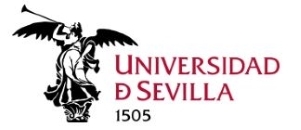Cód. SSPA: IBiS-C-14
Our laboratory "Synthesis and Function of Ribosomes" is a multidisciplinary team made up of two groups that study fundamental aspects of nucleolar metabolism and protein translation, as well as the possible relationship of these processes with various human pathologies.
Part of the team devotes its efforts to the study of the fundamental process of ribosome assembly in eukaryotic organisms. In stark contrast to prokaryotic ribosomes, attempts to reconstitute eukaryotic ribosomes in vitro have failed to this day, suggesting that the biogenesis of ribosomes in eukaryotes must be significantly more complex compared to that of prokaryotic ribosomes. Most of our understanding of the ribosome synthesis process has been obtained from the model yeast, Saccharomyces cerevisiae. However, numerous experimental evidences indicate a high structural and functional conservation of this process in higher eukaryotes, so the results obtained in this model organism can be extrapolated to humans. Along these lines, it is important to note that many human diseases are related to defects in the process of ribosome formation, including hereditary syndromes called ribosomopathies (including Diamond-Blackfan anemia) and cancer. To this end, we apply the entire repertoire of classical genetic, biochemical and molecular approaches available in yeast and experimental tools in human cell lines of biomedical interest to address this process. In addition, we are interested in the study of the role of translation initiation in human cells treated with chemotherapy drugs and its relationship with proteostasis.
Independently, the laboratory also focuses on the study of ribosomal DNA repair processes in human cell lines. Within this research is the molecular and functional characterization of nucleolar stress that derives from specific damage to ribosomal DNA and its relationship with cancer. Likewise, we have found that epigenetic modifications in this region of the genome can be critical in the future of DNA repair, and can be used for the search for alternative therapeutic targets aimed at the process of transcription of ribosomal DNA. With a strong translational potential, our group is also interested in elucidating the nature and toxicity of DNA repair byproducts generated by radiotherapy in lung cancer, as prognostic biomarkers.
Research Lines:
- SYNTHESIS AND FUNCTION OF RIBOSOMES
Regarding Synthesis and Function of Ribosomes, the work in our laboratory focuses on the following general topics:
- Definition of the mechanisms of biogenesis of ribosomal subunits.
- Study of the precise roles of trans-acting factors in ribosomal subunit assembly.
- Study of the roles of ribosomal proteins in the assembly and nucleocytoplasmic transport of pre-ribosomal particles.
- Study of the translation properties of ribosomal protein mutants. Funded by 101024158 RiboEscapers MSCA
- Study of point mutations in ribosomal protein genes linked to human ribosomopathies.
- Molecular impact of Sorafenib and other chemotherapeutic drugs on the translation of human hepatocarcinoma cells.
Contact: Jesús de la Cruz (jdlcd@us.es) y Carla V. Galmozzi (cgalmozzi@us.es)
- GENOME DYNAMICS IN CANCER
Regarding genome dynamics in cancer, the work in our laboratory is focused on the following general topics:
- Regarding genome dynamics in cancer, the work in our laboratory is focused on the following general topics.
- Study of nucleolar stress and RNA metabolism in cancer through genotoxic damage.
- Study of the roles of ribosome assembly factors in DNA repair and cell cycle progression.
- Study of the epigenetics associated with ribosomal DNA damage.
- Definition of the reparosome as a biomarker of radiosensitivity and toxicity to radiotherapy in lung cancer.
Contact: Daniel Gómez-Cabello (dgcabello@us.es)















